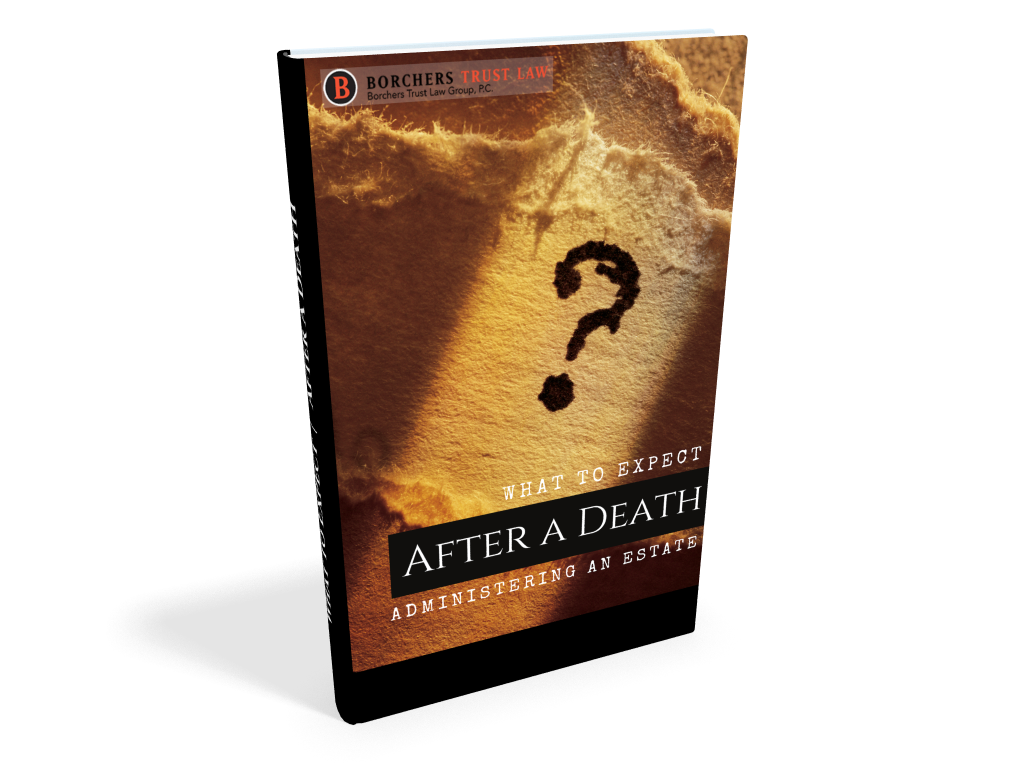After a Death: Actions to Take and When to Take Them
You have lost your spouse, parent, sibling, or friend. Suddenly, there are so many things to be done. Attending to their affairs can wait. Make sure you grieve and honor the life they lived and be sure to take care of yourself through this difficult process. Barring emergencies, 5 to 25 days is plenty of time to start taking action.
Here are the steps to take and when you’ll need to take them:
- By the time you read this, funeral arrangements may be a blur from the past, probably as a result of your being overwhelmed and the funeral director handling so much, so well. You probably already followed your loved one’s “Memorial Wishes” for the funeral, if there were any. Otherwise, spouses have first-say in the arrangements.
- The funeral director usually notifies the Social Security Administration of the death (Form SSA-721) and obtains the death certificates for you from local authorities. Often a dozen death certificates are enough. In the future more certificates can be obtained from the clerk of the municipality where the death occurred, and often from the town of last residence, or the state’s Vital Statistics office. Read the death certificate carefully. There can be mistakes.
- If you are already familiar with the bank accounts of your loved one, you probably know where to find statements, checkbooks, and how to get balances, but whether you have access to the funds is another story. If the account was joint with you, then you have the right to take over the account immediately and completely. If the account was “payable on death” or some other beneficial arrangement, then you must present a death certificate and probably will have to fill out a new signature card for the account in order to have complete access.
- You should notify financial representatives, and legal, insurance, and tax advisors who your loved one worked with and allow them to offer initial advice.
- Of course you should look for your loved one’s will and any trusts. A binder of documents, a folder, a phone number to reach an estate planning lawyer, are things to look for.
- If your loved one was the sole owner of any asset and no beneficiary was named, you may need that will. You will have to go through the probate process in order to obtain access. If there is no will to probate, state law will determine who inherits the estate. The probate process is similar whether there is a will in place or not.
- If probate is needed, you should engage the services of an experienced law office that knows probate in the jurisdiction where you live. It can take several weeks to be appointed as personal representative (executor) of the estate. To understand this role and others, check out our article, What Roles Need to Be Filled After a Death? If there are minor children, the same probate court can appoint a guardian (to handle their health, education, and upbringing) and/or conservator (to handle their inheritance if that is required).
- If you are named a beneficiary on an IRA or life insurance policy, there are forms to claim the account or policy. Be cautious in filling out forms, especially when it comes to an IRA, not to choose the wrong options. Cashing an IRA or annuity in could be a big mistake for tax purposes.
- Locate and review trust documents, first on your own and then with the assistance of a trust attorney. It may be wise to return to the attorney who wrote the trust for guidance, but not always. Probably the same attorney who handles the probate can interpret the trust. But, trusts are a special area of practice. Beware that trusts often have important tax elections and shelters. Although trusts are meant to avoid probate, that doesn’t mean they avoid taxes and accountability to beneficiaries.
- If you are named as a trustee, you will need to formally accept appointment.
- Most trusts will require a new tax ID following the death applied for through the IRS. We recommend that you hold off applying until you are sure what the exact name of the trust is and whether there are new sub-trusts being formed, and let the legal or tax advisors obtain the IDs.
- As you get comfortable with what must be done, you begin to see how all the details fall into place. A master checklist or agenda of activities should emerge. You should get a handle on the cost and time frame of settling the estate by conferring with the professionals and by your own observations of what must be done. This will give you the perspective you need to eventually see an end in sight.
- Go slowly at first in making any estate distributions. Make sure that bills are paid and taxes filed. That said, try to get specific bequests paid out within a year. (After that they may have to be paid with interest.) Be cautious about personally making gifts of the proceeds of the estate. Make sure your needs are met and that you have a financial plan. If you can then do more for others, by all means, do so.
- As soon as you can fit it in, update your own legal documents (will, trusts, powers, proxies, and so forth). Ones that named your deceased loved one should be reviewed if not replaced. In some cases, you may need new instruments.
- Soon other personal decisions will present themselves, such as whether to stay in current living arrangements or whether you will seek out new opportunities. A silver lining can be that you now have an opportunity to clean house, both literally and figuratively. Hopefully you have support, and the ability to say, “Onward!” and embrace a new chapter in your life.
There is more to be done, to be sure, but it will get done, eventually. The often-cited adage that it is best not to make any major decisions for a year, has merit. You need time to gain a revised outlook on life, and a year may be about right for this to occur.
At our law office, we act as attorneys, and as the educator and supporter to families settling estates. We act as trustee and personal representative when that is desired. We make reliable checklists, and hold frequent calls and meetings. After years of experience, we see that clients value these approaches. See what your advisors will do for you to make it a rewarding process, not a frustrating one.
After taking care of yourself, we hope your experience is a positive one.
If you would like help in settling the estate of a loved one, we are here to help.
If you have further questions, take a look at our After a Death ebook, which explains what happens to assets and debts, what taxes will be incurred, and what roles will need to be filled.






